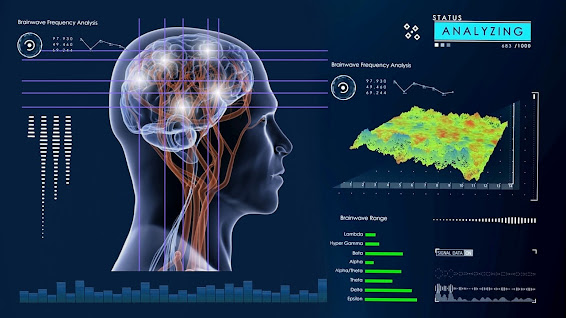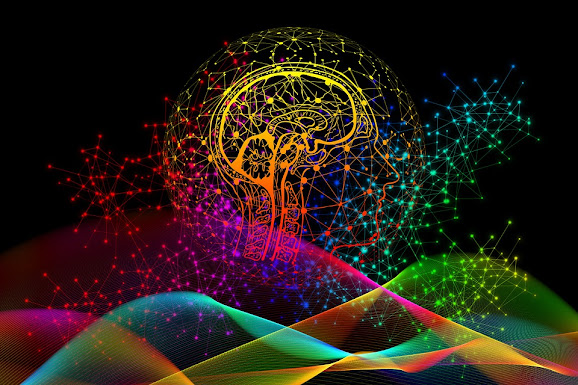Methamphetamine / Crystal Meth: Awareness, Research and Resources
"Methamphetamine is a hideous drug. Meth makes a person become paranoid, violent, and aggressive - making them a serious threat to society and law enforcement. And maybe more importantly, meth users are a threat to their own children and families." - Dirk Kempthorne
What is Methamphetamine / Crystal Meth?
Methamphetamine Abuse and Recovery
Methamphetamine is a powerful and highly addictive central nervous system stimulant. Abuse of methamphetamine can lead to severe physical and mental health issues. Recovery from methamphetamine abuse is a challenging process that often requires a comprehensive and multifaceted approach.
Here are some key aspects of methamphetamine abuse and recovery:
Methamphetamine Abuse
- Effects on the Body:Methamphetamine increases the release of dopamine in the brain, leading to intense feelings of pleasure and euphoria.
- Short-term effects include increased energy, alertness, and a decreased appetite.
- Long-term use can result in serious health issues, such as cardiovascular problems, dental issues ("meth mouth"), skin sores, and weight loss.
Addiction and Dependence
- Methamphetamine is highly addictive, and regular use can lead to the development of tolerance and dependence.
- Individuals may find it difficult to control their use despite negative consequences.
Mental Health Impacts
- Chronic use can lead to anxiety, paranoia, aggression, hallucinations, and other mental health issues.
- Long-term abuse is associated with cognitive deficits and changes in brain structure.
Methamphetamine Recovery
Detoxification
- The first step in recovery is often detoxification, during which the body eliminates the drug.
- Medical supervision may be necessary to manage withdrawal symptoms, which can include fatigue, increased appetite, and depression.
Treatment Programs
- Inpatient or outpatient treatment programs may include behavioral therapies, counseling, and support groups.
- Cognitive-behavioral therapy (CBT) is commonly used to help individuals identify and change patterns of thinking and behavior associated with drug use.
Medication-Assisted Treatment (MAT)
- There is no FDA-approved medication specifically for methamphetamine addiction, but some medications may help manage withdrawal symptoms and cravings.
- Research is ongoing to develop effective medications for methamphetamine use disorder.
Support Groups
- Participation in support groups, such as Narcotics Anonymous (NA) or SMART Recovery, can provide a sense of community and understanding.
Counseling and Therapy
- Individual and group therapy can help individuals address underlying issues contributing to their substance abuse and develop coping mechanisms.
Lifestyle Changes
- Adopting a healthy lifestyle that includes regular exercise, proper nutrition, and stress management can support the recovery process.
Relapse Prevention
- Learning and implementing strategies to prevent relapse is a crucial aspect of long-term recovery.
- Ongoing support and aftercare services are important in maintaining sobriety.
Family Involvement
- Involving family members in the recovery process can improve outcomes and provide a strong support system.
It's important for individuals struggling with methamphetamine abuse to seek professional help. Recovery is a gradual process, and ongoing support is essential for sustained success. If you or someone you know is dealing with methamphetamine addiction, reaching out to healthcare professionals or addiction specialists is a crucial first step." (Source: ChatGPT 2023)
Methamphetamine is also Referred To As: Crank, Crystal Meth, Glass, Ice, Meth, Tina And Christine, Yaba
A Qualitative Study of Methamphetamine Initiation in Cape Town, South Africa NIH
A Potential Breakthrough in Meth Treatment Treatment Magazine
Addicted to the ‘life of methamphetamine’: Perceived barriers to sustained Methamphetamine Recovery Taylor and Francis Online
Can Brains Bounce Back? Recovering Addicts turn to science to map the effects of Meth The Guardian
Cessation strategies used successfully by individuals in recovery from methamphetamine addiction PDF Download PDF Download Yvonne Gordon and Christine Stephens, School of Psychology, Massey University, New Zealand
Combination of two drugs can help treat methamphetamine addiction for some, new clinical trial data shows STAT News
Crystal Methamphetamine use in British Columbia, Canada: A Cross-Sectional Study of people who access Harm Reduction Services Plos One
Crystal Meth: What You Should Know WebMD
Everything you need to know about Crystal Meth Medical News Today
Exploring treatment barriers on the use of Crystal Methamphetamine among young people in Harare, Zimbabwe Taylor and Francis Online
Finally, an Effective Treatment for Methamphetamine Addiction California Health Care Foundation
How does Crystal Methamphetamine work? Cracks In The Ice
How Many Meth Addicts Recover? Defining Wellness Centers
Psychological treatment for Methamphetamine use and Associated Psychiatric Symptom Outcomes: A Systematic Review ScienceDirect
Can Brains Bounce Back? Recovering Addicts turn to science to map the effects of Meth The Guardian
Cessation strategies used successfully by individuals in recovery from methamphetamine addiction PDF Download PDF Download Yvonne Gordon and Christine Stephens, School of Psychology, Massey University, New Zealand
Everything you need to know about Crystal Meth Medical News Today
Exploring treatment barriers on the use of Crystal Methamphetamine among young people in Harare, Zimbabwe Taylor and Francis Online
Finally, an Effective Treatment for Methamphetamine Addiction California Health Care Foundation
How does Crystal Methamphetamine work? Cracks In The Ice
How Many Meth Addicts Recover? Defining Wellness Centers
Psychological treatment for Methamphetamine use and Associated Psychiatric Symptom Outcomes: A Systematic Review ScienceDirect
Methamphetamine Awareness Information about methamphetamine for Consumers and Carers PDF Download Queensland Government, Australia
Meth Withdrawal & Addiction Recovery Sierra by the Sea
Meth Withdrawal Symptoms And Detox Addiction Center
Meth Withdrawal Symptoms and Detox Timeline The Recovery Village
More Human: An Ethnographic Study of Methamphetamine Recovery - Samuel James Brookfield PDF Download: A thesis submitted for the degree of Doctor of Philosophy at The University of Queensland
Understanding the laps and relapse process: In-Depth Interviews with Individual who use Methamphetamine BMC
Meth Addiction: Facts, Statistics & How Meth Changes You American Addiction Centers
Meth Addiction Treatment & Rehab Programs Near Me American Addiction Centers
Meth Addiction Treatment & Rehab Programs Near Me American Addiction Centers
Meth Withdrawal & Addiction Recovery Sierra by the Sea
Meth Withdrawal Symptoms And Detox Addiction Center
Meth Withdrawal Symptoms and Detox Timeline The Recovery Village
More Human: An Ethnographic Study of Methamphetamine Recovery - Samuel James Brookfield PDF Download: A thesis submitted for the degree of Doctor of Philosophy at The University of Queensland
Stigma, Discrimination and Crystal Methamphetamine (‘Ice’): Current Attitudes in Australia ScienceDirect
Sustained Recovery from Crystal Meth use: A Consensual Qualitative Research Study American Psychological Association
The experience of Methamphetamine Use Disorder and the Negative Consequences of Relapse – A Qualitative Study Taylor and Francis Online
Understanding Illegal Methamphetamine Manufacture in Afghanistan PDF Download UNODC
Use of Crystal Methamphetamine among male adolescents in Cape Town, South Africa: Caregivers' Experiences BMC
What are the long-term effects of Methamphetamine Misuse? NIH
What is Crystal Meth and Why is it so Dangerous? Free by the Sea
What Is Crystal Meth Made From? Ingredients & Meth Cutting Agents Desert Hope Treatment Center
What is Methamphetamine? NIH
What Is Methamphetamine (Meth)? KidsHealth
🎓 Mental Health, Psychology and Relationship Resources
What Is Crystal Meth Made From? Ingredients & Meth Cutting Agents Desert Hope Treatment Center
What is Methamphetamine? NIH
What Is Methamphetamine (Meth)? KidsHealth
Meth Inside Out: Brain & Behavior - The Recovery Process
🎓 Mental Health, Psychology and Relationship Resources











